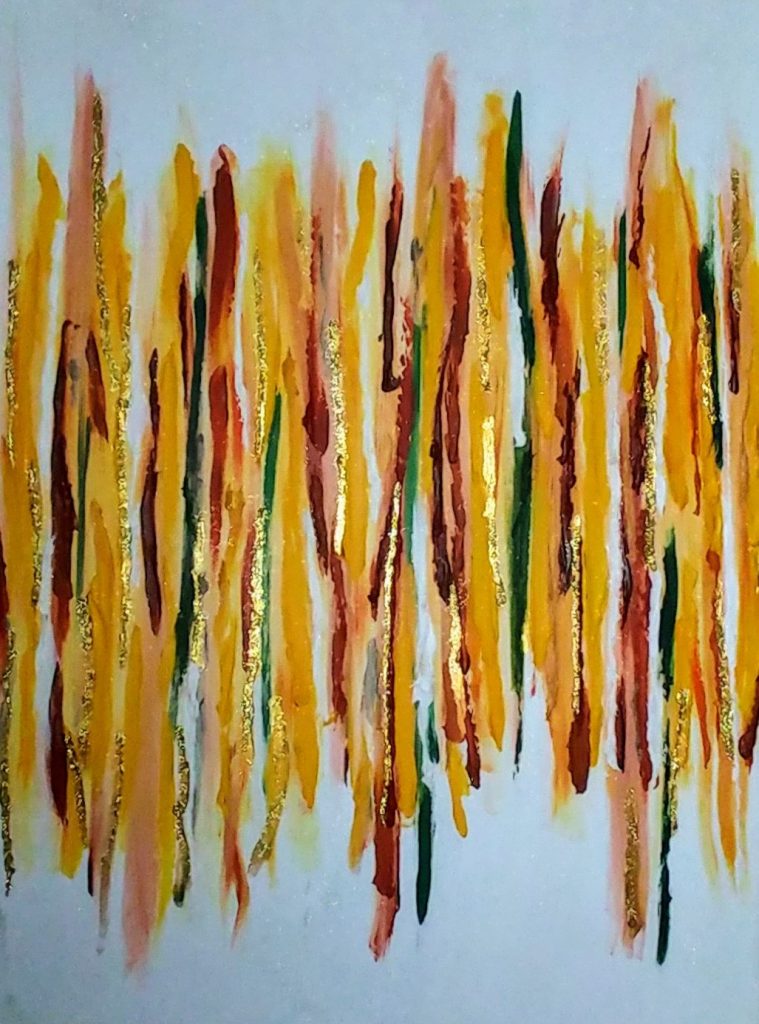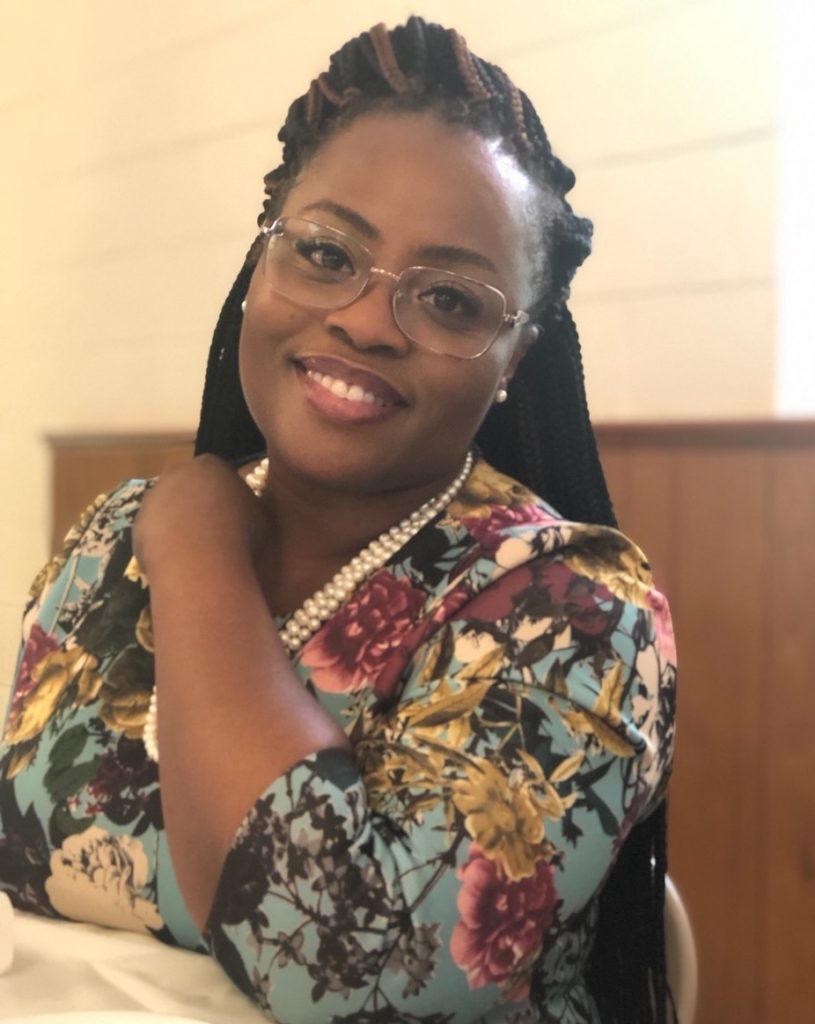In this Featured Member series, AATA celebrates the work of our members. We are pleased to introduce LaToya Pegram as the inaugural Special Sessions Chair on AATA’s Conference Committee. We asked her some questions about her practice and adapting to the COVID-19 global crisis.
April 21, 2021
What has changed in your work during the COVID-19 global crisis?
At the start of the pandemic, I completed Telehealth training in counseling and Telehealth trainings specific to Art Therapy. During the onset of the pandemic, I transitioned part of my caseload from in person to Telehealth counseling. I remained in person with the individuals I provide art therapy to. However, I was required to implement safety protocols such as wearing a mask during all sessions, and I increased my caseload briefly to be trained in and assist as a telephonic crisis counselor for the state of New Jersey where clients called in as needed for support. Lastly, I provided instruction via virtual learning for both college freshman and vacation bible school youth. At this time, I provide hybrid counseling considering CDC recommendations in residential treatment.
In what ways have your clients been impacted by COVID-19? How are you managing your own stress during this time?

“Pollock Inspired,” by LaToya Pegram. Acrylic Paint. August 29, 2020.
Due to COVID-19, many individuals I serve are faced with the mandate to adhere to social distancing guidelines, to limit visitation with loved ones or quarantine after visits which I find increases symptoms of stress, depression, and maladaptive behaviors. Although many experience change with the pandemic, my services continue to aid in managing the mental health crisis in the country. At this time, I manage any personal stress through work which provides enjoyment, positive gaming, reading, learning new techniques, cooking, baking and spending time engaging in leisure activities with my family.
How have race related issues, social justice, and racism informed or impacted your work as an art therapist?
Facing race related issues, social injustice and racism, personally, not only altered my worldview but also challenged the lens through which I see others. It taught me how to value others despite their behaviors. Traveling around the world throughout my development, racism was unknown until I returned to the country, I was born in. Rejected by Americans and accepted by foreigners really perplexed the very ideology of what I called home. Thus, before I was an Art Therapist, Art, for me, was therapy. Art allowed me to verbalize social, racial, sexist and all other injustices that were endured. Those who know my prior work are often challenged to not only look inward but also externally to assess how one’s behavior impacts that of another. This impacts my work as an art therapist and as a student of life because it taught me that some use art as a voice and this perspective allows me to communicate with the individuals I serve when words cannot be formulated.
How do you view your role as an art therapist during COVID-19?
During COVID-19, my role as an art therapist expanded from the office to the community. I found that not only the individuals I serve needed services but also those standing in the grocery store line behind me. As the pandemic lengthened, Maslow’s Hierarchy of Needs was at the forefront of my approach as I seek to build resilience even in small acts of communication. I find that now more than before people are welcoming the idea of mental wellness. Whether people are being forced to connect within home or through extensive hours on screen, the pandemic has motivated many to self-reflect on values, goals, and loved ones. People have tapped into innovative and creative ideas that sparked new business ventures and ways to acquire one’s goals. The creation and exploration of genograms has been a preferred directive especially during this time as it not only teaches patterns of behavior but also provides insight to provoke awareness.
LaToya Pegram, ATR-BC, LPC, NCC

Photo by Dash Sanders, age 4.
LaToya Pegram believes in William James’ words that, “the great use of life is to spend it for something that will outlast it.” However, to create the “outlast” one must understand Albert Pine’s words that “What we do for ourselves dies with us; what we do for others and the world remains and is immortal.” Pegram has spent her life teaching, mentoring, and helping develop individuals’ spiritually, mentally, emotionally, physically and in higher education as a board-certified Art Therapist and licensed counselor. Pegram received her training from The University of Colorado (BA), The George Washington University where she obtained a Master of Arts in Art Therapy and The College of New Jersey where she acquired her Master of Arts in Marriage, Family, and Couple’s therapy and Counseling. When Pegram is not counseling, she spends her past time with family, helping others, offering couples’ guidance, supporting local businesses, volunteering as a chef at a soup kitchen for seniors, feeding the homeless, teaching vacation bible school and baking. She has participated at AATA Conferences as an attendee, presenter, and workshop assistant and participates on the Multicultural Committee of the AATA.
